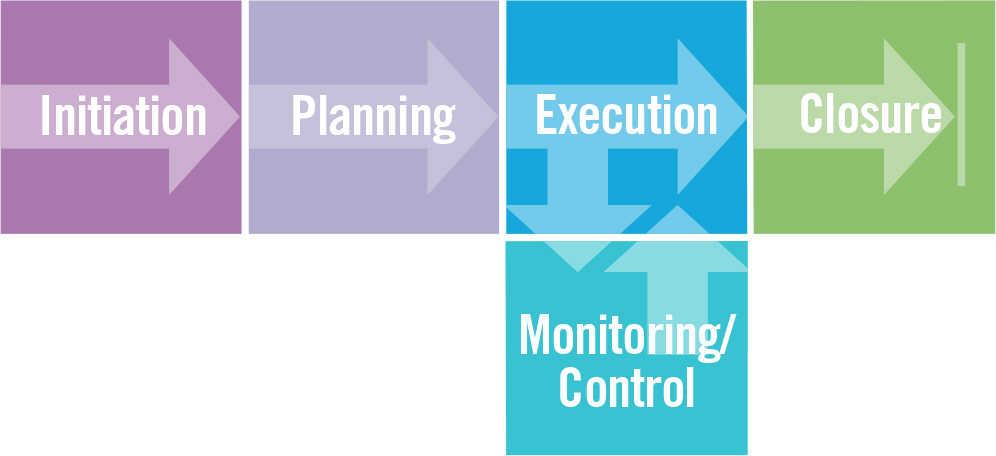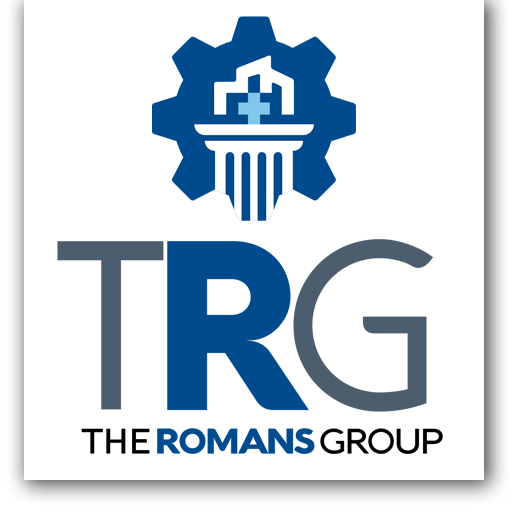
PROJECT MANAGEMENT SERVICES
TRG’s Project Management Services provide management and consulting services in the following areas:
• Project Management
• Change Management
• Process Improvement
• Project Management Office Implementation
• Regulatory Compliance
• Strategic Planning
• Workflow Analysis
• Document Control
• Supply Chain Management
• System Implementation
While every project is unique, our standard process allows for management in a variety of industries (IT, Healthcare, Chemical, Industrial Gas, etc.), project types, and project sizes. Each project progresses through the following stages:

Stage 1: Project Initiation
During the Project Initiation, TRG works with the Client to identify requirements, establish clear and achievable objectives, balance competing demands from the different stakeholders, and ensures a commonality of purpose is achieved. TRG and the Client work to refine the project and scope utilizing some of the following tools:
• Project Worksheet
• Project WBS
• Project SOW
• Project Deliverables
The Initiation phase will take the client through proposal to contract.
Stage 2: Project Planning
Project Planning begins upon receipt of the signed contract. During this phase, TRG forms the Project Team, refines the tools used in the initiation stage, creates a Master Project Plan (MPP), and establishes the communication cadence with the Client’s project team.
• Scope: There will be a written scope statement reiterating the need, the objectives, and the deliverables of the project.
• Definition: Here we break down the larger deliverables into smaller ones, which will help manage them.
• Tasks: Identify the tasks necessary to produce the deliverables and any dependencies on other tasks.
• Schedule: Determine the duration of the tasks and set dates for their completion.
• Cost: Estimate the costs involved across the project and formulate a budget.
• Quality: Make sure the quality objectives can be met throughout the project.
• Organization: Note how the project will be organized, including reporting on project progress.
• Staff: Assign roles and responsibilities to the project team.
• Communications: Determine how information will be disseminated, to whom, and with what frequency.
• Risk: Evaluate the possible project risks, how they may impact the project, and a plan to mitigate them.
• Procurement: Decide what work/tasks or materials will be contracted out. Define, negotiate, and procure the contracts.
Stage 3: Execution
A Kick-Off meeting marks the start of the Execution phase. TRG manages the execution of the Master Project Plan (MPP) with status meetings and progress reports to ensure milestones are met on time.
Stage 4: Monitoring and Control
This phase occurs simultaneously with the Execution of the Project. It consists of measuring project progression, performance, and ensuring everything aligns with the Master Project Plan. Project Managers use key performance indicators (KPIs) to determine if the project is on track.
• Reporting: Metrics to measure project progress and an instrument to deliver this information.
• Scope: Monitor scope and review potential scope changes.
• Quality: Monitor the quality of deliverables to ensure the planned quality is being met.
• Schedule: Keep track of delays or blocks impacting the timeline of the project and adjust as needed.
• Cost: Monitor expenses and control cost changes.
• Risk: Note changes in risk throughout the project and respond accordingly.
Stage 5: Closure
The project enters closure once the final milestones are completed. TRG works with the client on administratively closing the project and any lessons learned during execution.
• Scope: Make sure Project Deliverables have been completed and signed off.
• Administration: Close out all outstanding contracts and administrative matters, archive the paperwork and disseminate to proper parties.
TRG’s leadership team, associates and partners are all brought to our clients’ advantage, augmenting our core competencies.
We will reach out to find the skillset necessary to meet every need.
Corporate Development
Strategy Development
Sustainability
Documentation Control
Market Feasibility Analysis
Process Improvement & Lean Six Sigma
Growth Management
Innovation & Product Line Development
Technology & Digital Transformation
Policy and Program Development
Business Plan Development
Change Management
Operational Efficiency
People & Organization Development
Project Management
Leadership Development/Recruitment
Operational Flow Design
Systems Modeling
